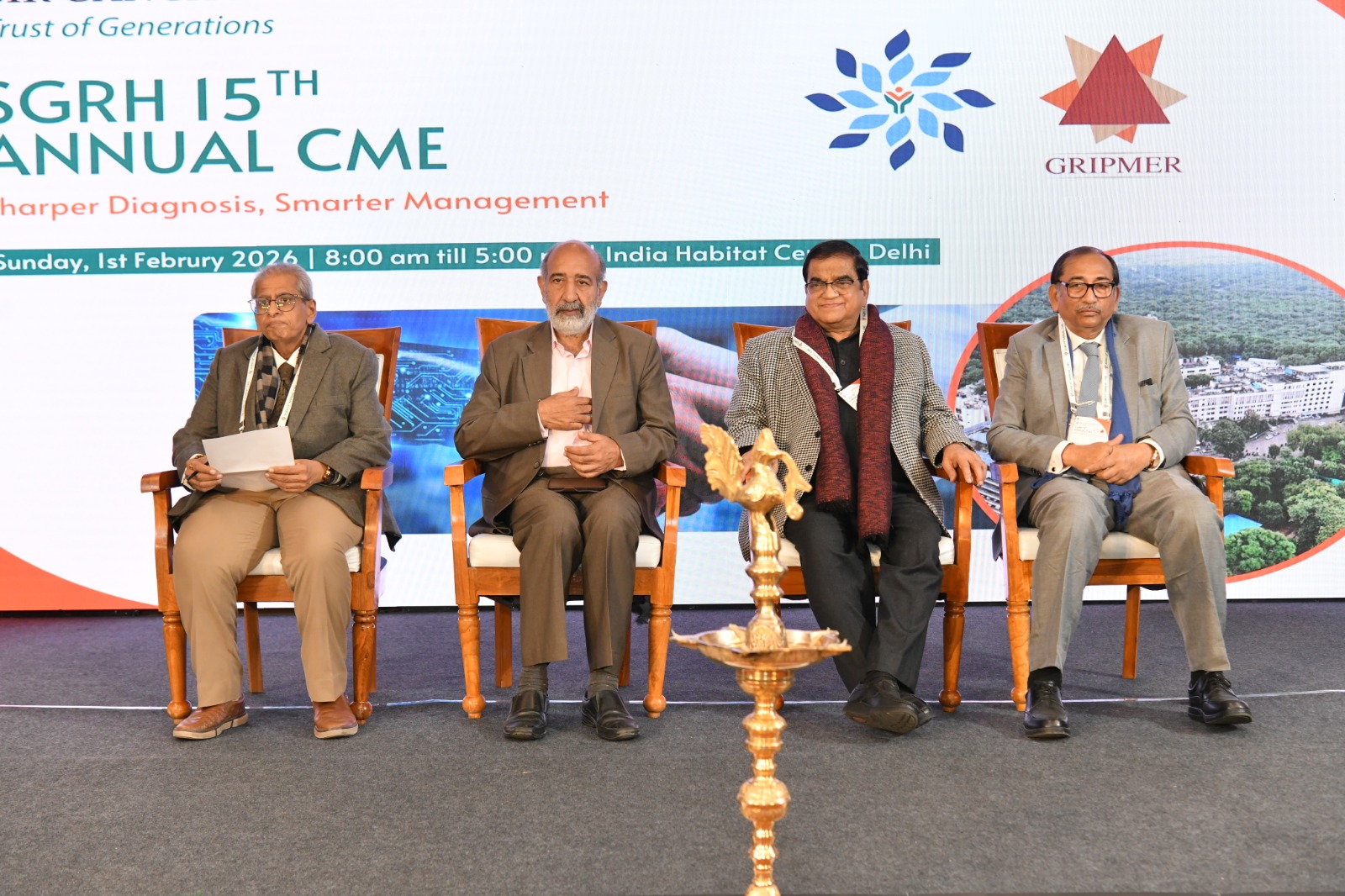
 New Delhi: Time to take First Lipid Profile at age 18? Sounds intimidating indeed. If you are not part of family ‘history’ of premature heart disease, you may skip it but lipid profile is the most crucial determinant of heart health for people of all ages. Cardiology Society of India has created ‘history’ by releasing ‘First Indian Guidelines for Dyslipidaemia Management’. The new guidelines emphasize that one lipid profile size does not fit all. Experts advise people to let only doctors to read the devil in the detail.
New Delhi: Time to take First Lipid Profile at age 18? Sounds intimidating indeed. If you are not part of family ‘history’ of premature heart disease, you may skip it but lipid profile is the most crucial determinant of heart health for people of all ages. Cardiology Society of India has created ‘history’ by releasing ‘First Indian Guidelines for Dyslipidaemia Management’. The new guidelines emphasize that one lipid profile size does not fit all. Experts advise people to let only doctors to read the devil in the detail.
In the context of new domestic guidelines, Statin emerged as the most effective tool in Dyslipidemia management. Statin are a group of medicines that is said to effectively reduce bad cholesterol. Experts vouched for efficacy of statin in no uncertain terms.
The guidelines took about four years to take shape based on Indian data. In the absence of domestic data, earlier guidelines had to be extrapolated from other sources but, given the peculiarity of status of Indian hearts in terms of susceptibility to diseases, creation of domestic guidelines was long overdue.. Dyslipidemia is the state of abnormally elevated cholesterol or fats (lipids) in the blood making people susceptible to heart attacks and strokes.
The cardiovascular experts present at the occasion advised one should sit pretty after knowing the seemingly good lipid numbers because the devil is in the detail. Your doctors can only decipher whether your numbers add up to healthy heart scenario.
Dr. J. P. S. Sawhney, Chairman of the Department of Cardiology at Sir Gangaram Hospital, New Delhi, & Chairman of the Lipid Guidelines unveiled it in a press conference on July 4 and red flagged vulnerability of Indian population stressing the need for management of dyslipidemia to keep untoward events at bay. Dr Sawhney said, ‘Aggressive targets are suggested for very high risk patients including those with a history of heart attacks, angina, stroke and chronic kidney disease.
Over 22 renowned cardiologists huddled together to shape this new guidelines. Dr. S. Ramakrishnan, Professor of Cardiology at AIIMS, New Delhi, & Co-Author of the Lipid Guidelines and Dr. Ashwani Mehta, Senior Consultant Cardiologist at Sir Ganga Ram Hospital, New Delhi, & Co-Author of the Lipid Guidelines explained in details the danger emanating from Dislipidemia and advised people to let clinicians understand the nuances.
Dyslipidemia is the function of high Total Cholesterol, Elevated LDL-Cholesterol (bad cholesterol), High Triglycerides, and Low HDL-Cholesterol (good cholesterol) and is a critical risk factor for cardiovascular diseases (CVD) such as Heart Attacks, Strokes, and Peripheral Artery Disease. The prevalence of dyslipidemia in India is alarmingly high, with significant interstate variations and particularly elevated rates in urban areas.
“High LDL-C and non-HDL-C can be controlled with a combination of statins and oral non-statin drugs. If goals are not achieved, injectable lipid-lowering drugs like PCSK9 inhibitors or Inclisiran are recommended,” noted Dr. Ramakrishnan
For patients with high triglycerides (>150 mg/dL), non-HDL cholesterol is the target. Lifestyle changes, such as regular exercise, quitting alcohol and tobacco, and reducing sugar and carbohydrate intake, are crucial. In patients with heart disease, stroke, or diabetes, statins, non-statin drugs, and fish oil (EPA) are recommended. Triglycerides levels above 500 mg/dL require the use of Fenofibrate, Saraglitazor, and Fish Oil.
“Genetic causes of dyslipidemia, such as familial hypercholesterolemia, are more common in India than in other parts of the world. It is essential to identify and treat these cases early through cascade screening of family members,” emphasized Dr. Mehta. Furthermore, the guidelines recommend evaluating lipoprotein (a) levels at least once, as elevated levels (>50 mg/dL) are associated with cardiovascular disease. The prevalence of elevated lipoprotein (a) is higher in India (25%) compared to the Western world (15-20%).
In a statement sent for the release event Dr. Pratap Chandra Rath, President of Cardiological Society of India (CSI), stated, “Dyslipidemia is a silent killer, often symptomless unlike hypertension and diabetes. He stressed the importance of proactive management and early detection. New guidelines recommend non-fasting lipid measurements for risk estimation and treatment, shifting from traditional fasting measurements. Elevated LDL-C remains the primary target, but for patients with high triglycerides (>150 mg/dL), non-HDL cholesterol is the focus.”
In another statement said, Dr. Durjati Prasad Sinha, Hony. General Secretary, CSI, highlighted, saying “Non-fasting lipid measurements make testing more convenient and accessible, encouraging more people to get tested and treated. The guidelines recommend the first lipid profile at age 18, or earlier with a positive family history of premature heart disease or familial hypercholesterolemia. The general population and low-risk individuals should maintain LDL-C levels below 100 mg/dL and non-HDL-C levels below 130 mg/dL. High-risk individuals, such as those with diabetes or hypertension, should aim for LDL-C below 70 mg/dL and non-HDL below 100 mg/dL.”








